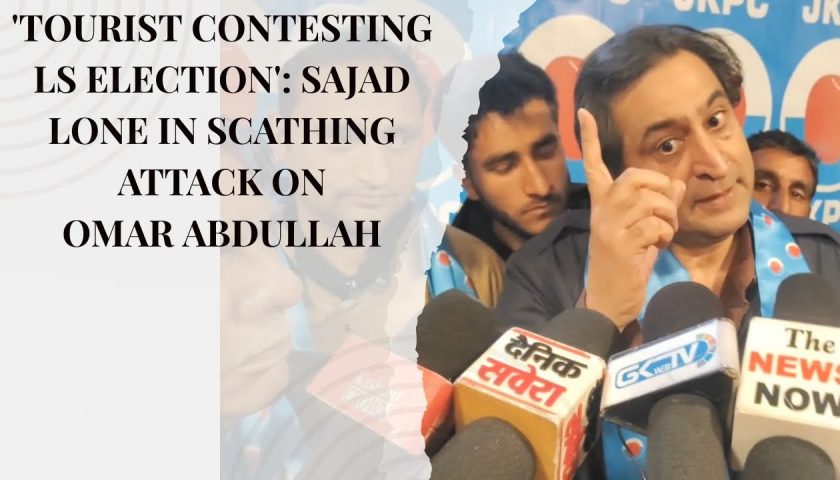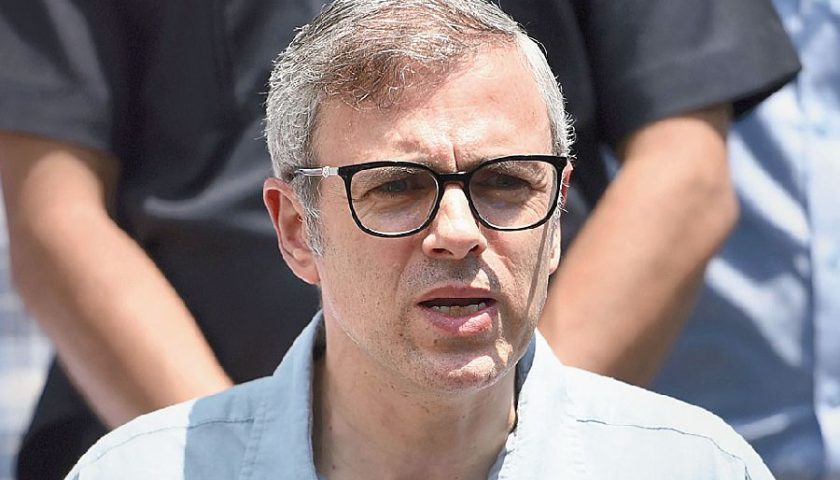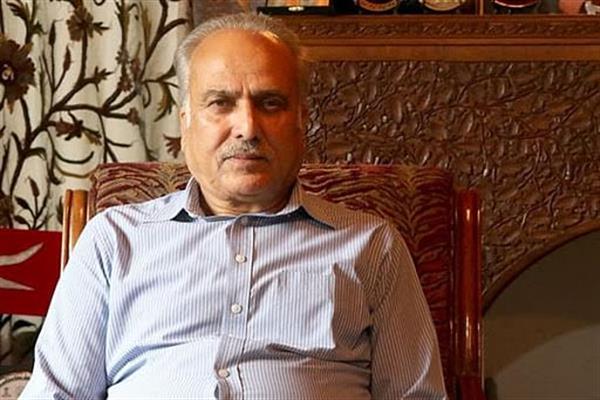A former RSS pracharak and, now, one of the most influential BJP leaders, Ram Madhav spoke to Kashmir Post about Centre’s recent peace overtures in the Kashmir Valley.
Fifty-three-year-old Ram Madhav is the go-to man in the BJP for Kashmir-related affairs, northeast and internal security matters.
A former RSS pracharak and, now, one of the most influential BJP leaders, Madhav spoke to Kashmir Post about Centre’s recent peace overtures in the Valley. The BJP general secretary said Kashmir and dialogue with Pakistan needed to be de-linked.
Excerpts from the interview:
The timing of the appointment of a special representative for Kashmir came as a surprise. What led to this decision?
There was a demand from various sections in Kashmir for talks with the state government and the Centre. Home minister (Rajnath Singh) made a couple of visits to the Valley and several groups met him. It is difficult for a person of his stature to engage in any parley on a sustained basis. We decided to have someone (Dineshwar Sharma) who will be available for a sustained dialogue. So timing should not be a big question.
Is there a time frame for this dialogue?
The appointment order says it will be a sustained dialogue. It will go on for some time.
Will he (Sharma) talk to Hurriyat leaders as well?
If Hurriyat comes forward, he will talk to them. The dialogue has to happen in a very open manner, without any precondition. We have a multi-pronged approach to tackle Kashmir issue. The dialogue initiative is one of them. People at times misconstrued it as the only initiative undertaken to establish peace in Kashmir. That’s not true.
What are the other options?
Militancy needs to be tackled with a tough hand, which we are doing. Public protest, such as stone pelting, is the second dimension of Kashmir problem, which has been strongly dealt with while ensuring there are no casualties.
Third dimension includes businessmen, politicians, so-called NGO groups, who are overt support mechanism for the militants and anti -India activists. We adopted a legal mechanism to tackle them- through the NIA (national Investigation Agency) and other agencies. The fourth is development activities. Now we added this fifth dimension (of sustained dialogue).
Can action against relatives of separatist leaders and dialogue go together?
The NIA does not act on the basis of relationship. It acts on the basis of material evidence . It is not a matter of consideration for the NIA to see who is related to whom. It is doing its job as per the law. Let me tell you, when you are in an agitation, you will face jail. But that should not prevent you from having a dialogue. I don’t think these two things should be mixed up.
The J&K chief minister suggested to the Centre to follow former prime minister Vajpayee’s line on Kashmir. Has anything changed between Vajpayee’s time and now in the context of the government’s Kashmir policy?
This is all for the sake of argument. Vajpayee said we will engage and address the Kashmir issue under the purview of three broad principles- Jamhooriyat, Kashmiriyat and insaniyat. We, as the government, made efforts at that time. Subsequently, the UPA came to the power and ruled for 10 years. They made their own efforts. Today we have another BJP-led NDA government at the Centre. Each government adopts a particular way of tackling an issue. Is it different? Don’t we follow insaniyat? Of course we do. So things continue at one level. We all follow the principles, whether it is the UPA or the NDA. But, each government can have a slightly different approach– different way of handling the issue.
What is your response to former chief minister Farroq Abudllah, who said new dialogue process to resolve issues in Kashmir will not succeed until India talks to Pakistan as a part of the region belongs to the neighbouring country.
He has done so many somersaults in the last few years. His own party, the National Conference, in the beginning, had fought against the Kashmiri invaders. His father Sheikh Abdullah opposed Kashmiri invaders. Today if Farooq Abdullah thinks that those parts belong to Pakistan, at least that is not the view of the Indian parliament.
Is it time for resumption of dialogue with Pakistan?
A: I am not competent to talk about it. Kashmir issue and dialogue with Pakistan should be delinked, for the good of Kashmir and for general peace in the country. Pakistan is a neighbour. If we need to have dialogue with it, there are several issues and the government of India will take an appropriate decision at an appropriate time. As far as the present Kashmir issue is concerned, we believe– may be our partner has other ideas– it is purely a domestic issue for the governments in J&K and at the Centre.
What kind of solution you envisage from the latest dialogue process.
Everybody has stakes in Kashmir’s peace. If you have political demands, sky is the limit. But, you cannot have a gun in one hand and then say that I want this or I want that. That won’t be accepted.
What do you think about Rahul Gandhi’s evolution as a leader?
I don’t want to really demean or ridicule the opposition leader. His party has very high hopes on him. Good luck to them. India needs a good opposition party. The Congress in the last three years has not demonstrated any quality of a good strong opposition. We have been running the country as though there is no opposition. At one level it is good. But there is no real fun (laughs). You need good opposition. But I don’t see much happening for the Congress on the ground. You will see the results of two states (Gujarat and Himachal Pradesh). Having said that, Rahul has to grow. He has to rise as a powerful force in the country. We would like to see greater challenge coming to the BJP from the Congress. But now that is not the case.




